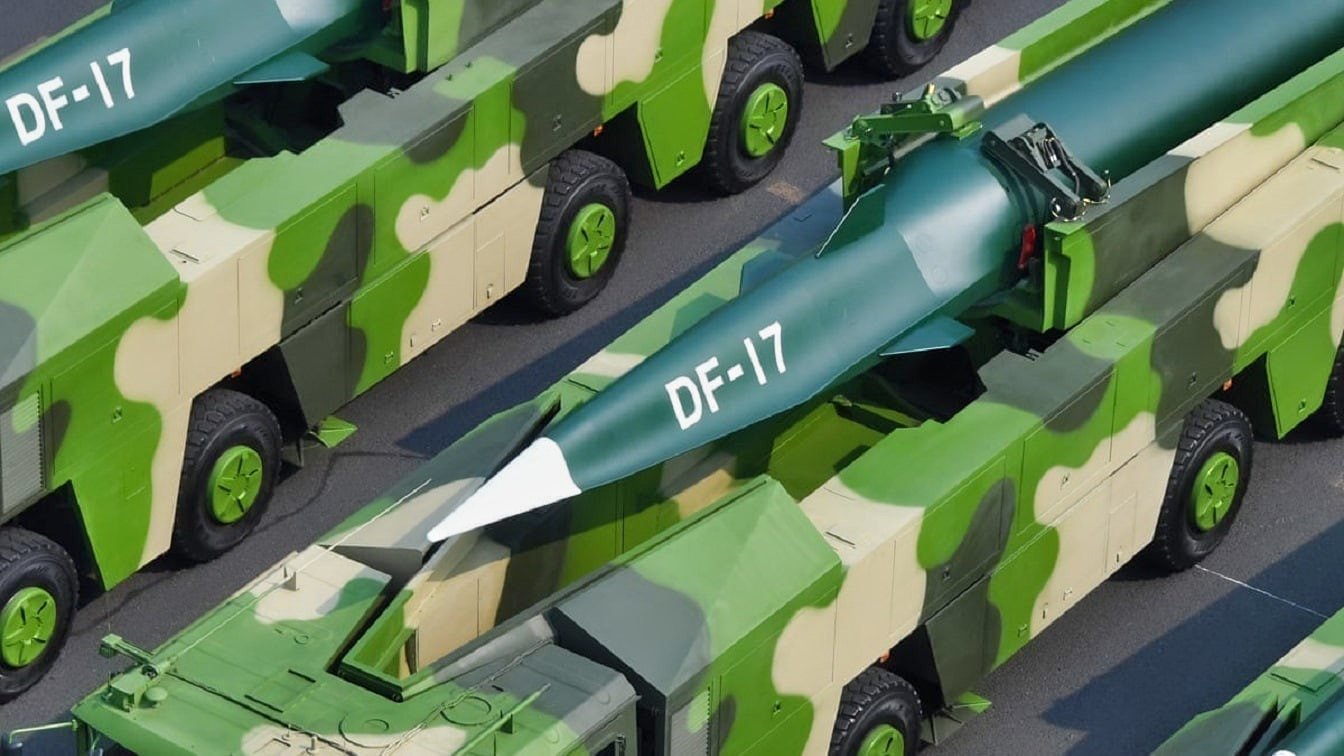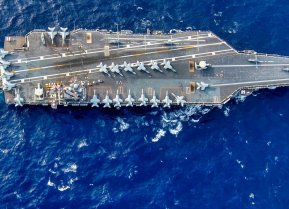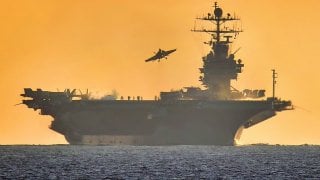Can the U.S. Military Stop an Invasion of Taiwan?
Currently, the balance of forces does not favor the United States. The Americans have had more than a decade to prepare for the inevitability of China trying to take Taiwan. Even with so many voices arguing that it was coming, the bureaucracy did little to prepare. Today, the U.S. military is stretched, drained, and essentially broken.
An invasion of Taiwan is on everyone’s mind. Concern peaked again after the Chinese military conducted a surprise drill on the same day as the inauguration of Taiwan’s pro-independence President Lai Ching-te (William Lai). China’s navy, coast guard, and air force surrounded the island during the drill.
So when will Chinese President Xi Jinping make a move to fulfill his dream of conquering Taiwan?
Many Western observers believe that move is coming soon. Some experts even suspect that China is readying to strike Taiwan as early as June. That is, after all, what China’s state-run media heavily intimated.

As China’s maritime forces surrounded Taiwan earlier this week, large numbers of ground forces were moved into prearranged staging areas along China’s coast. Their missile and rocket forces – the most powerful in the region currently – were likely put on high, wartime alerts.
This indicated to U.S. intelligence officials that the drill was more than a temper tantrum over the Taiwanese president’s inauguration (though that was certainly a factor). China’s “punishment drills” during President Lai’s inauguration were part of a larger mobilization of China in preparation for an eventual attack on Taiwan, either in the form of a blockade, an invasion, or both.
If and when China decided to invade Taiwan, what could the United States military do about it? Better yet, what would the U.S. military do about it?
Well, despite what the talking heads say, it is likely that neither President Joe Biden nor his likely successor (and predecessor), Donald J. Trump, would risk direct military confrontation over Taiwan.
The Balance of Forces Disfavors America in a Taiwan War
Currently, the balance of forces does not favor the United States. The Americans have had more than a decade to prepare for the inevitability of China trying to take Taiwan. Even with so many voices arguing that it was coming, the bureaucracy did little to prepare. Today, the U.S. military is stretched, drained, and essentially broken.
A recruitment crisis plagues all the military’s branches. Readiness is shot to nothing. Equipment is depleted, with few spares on hand. Even the technological accouterments that once defined America’s martial prowess are no longer reliable. They have become more like strategic liabilities rather than advantages, especially because foes such as China have developed effective countermeasures against those U.S. systems.
China dominates the region with its extensive rocket and missile forces.
A 2020 report in Military Review written by U.S. Marine Corps Captain Walter D. Mills makes it clear that the United States is the weaker player in the region, thanks to China’s growing arsenal of rockets and missiles.

This, alongside China’s overall anti-access/area-denial (A2/AD) strategy, makes any attempt by the United States to directly fight China in a protracted conflict over Taiwan extremely tenuous.
Per Mills, U.S. forces no longer boast the overmatch they enjoyed during the 1995-1996 Taiwan Strait Crisis. Meanwhile, the Taiwanese have also allowed the balance of military power to shift to the mainland.
The Americans are not only lacking in countermeasures against China’s arsenal of rockets and missiles, but American forces have fewer bases in the region (mainly in the Philippines). Because of this, the U.S. must rely on a handful of forward bases, all of which could be neutralized by China’s long-range missiles.
China Has Locked Up Their Region
China’s A2/AD systems could send U.S. aircraft carriers to the bottom of the drink, meaning that American airpower and sea power in the region will have been defeated in the opening phases of any conflict.
As Daniel L. Davis warned readers last year, “[The US] would likely lose many hundreds of attack aircraft, potentially scores of Navy ships (including four aircraft carriers), and the lives of tens of thousands of U.S. servicemen and servicewomen.”
Washington created the conditions where China has overmatched the Americans in the region. Taipei has allowed the same.
All this is to say that the Americans could not – and likely would not – attempt to repel any Chinese invasion of Taiwan in a conventional sense. There are some things the Americans might do. For instance, there is a U.S. Special Forces element in Taiwan, likely helping them prepare to wage an insurgency against Chinese occupiers.
No Direct War
But direct, kinetic strikes on Chinese forces invading Taiwan?
Such a response by the U.S. would be short-sighted and likely lead to the kind of strategic defeat that Washington must avoid.
China has outmaneuvered the Americans and their allies over the issue of Taiwan – for now. Let us hope that cooler heads can prevail until Donald Trump returns to the presidency. By then, hopefully, the U.S. can rehabilitate its military to the point that it could reliably deter the Chinese from attempting an invasion of Taiwan.
About the Author
Brandon J. Weichert, a National Interest national security analyst, is a former Congressional staffer and geopolitical analyst who is a contributor at The Washington Times, the Asia Times, and The-Pipeline. He is the author of Winning Space: How America Remains a Superpower, Biohacked: China’s Race to Control Life, and The Shadow War: Iran’s Quest for Supremacy. His next book, A Disaster of Our Own Making: How the West Lost Ukraine, is due October 22 from Encounter Books. Weichert can be followed via Twitter @WeTheBrandon.
All images are Creative Commons.


